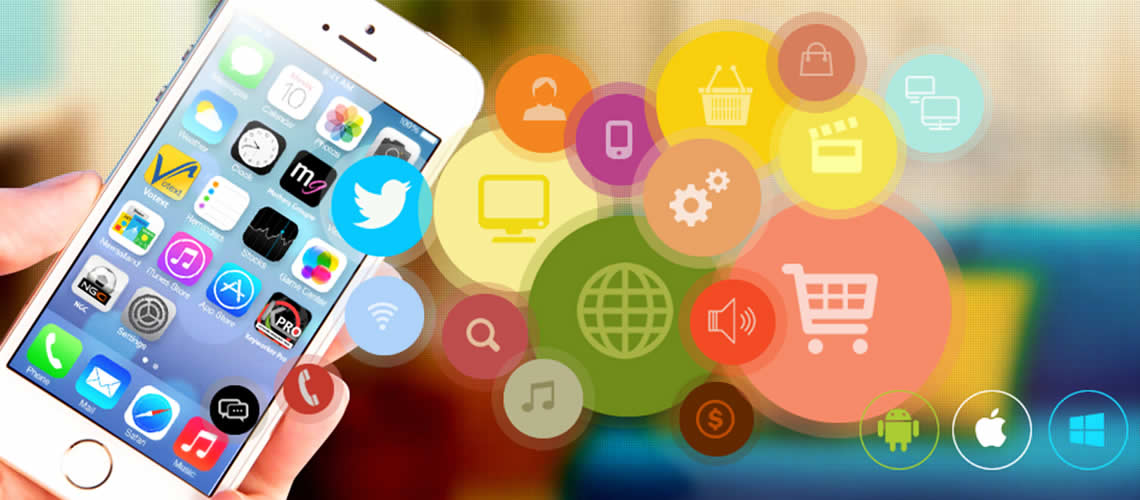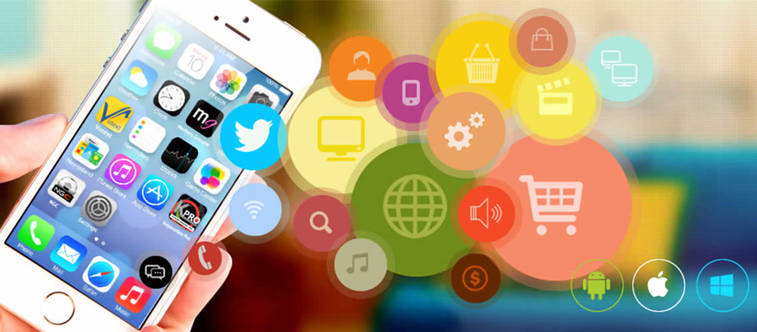
Businesses that can avail great Benefits from Mobile App Development (2025 Edition)
The reason people hesitate to step into it without knowing its benefits is that mobile app is a significant investment to carryout Mobile App Development Company in Dubai,a lot of money and time is required. An app has to have visual appearance and functionality, as the failure or success of the app depends upon its effectiveness.

Mobile apps offer significant benefits to businesses like restaurants, cafes, transport services and other service-based industries. Other companies can also avail this facility by using mobile apps. A mobile app is beneficial for your business too if you are running any similar business. Here, you'll find some reasons to develop essential apps for business productivity:
Hotels
For a service-based business like food chains, the mobile apps can be beneficial. On mobile phones, most of the searches are for restaurants or food ordering facility, according to recent studies. Locating your place to your customers is an easy job for the app. It can also help if you own a restaurant business and have branches in many locations.
Trade Shops
A fantastically great retail business is to own a Mobile app development. Your target audience would love to know about your store hours. If you have a retail store business, discounts, deals, and location of stores among others.
Sanitation
In emergency situations, apps are efficient and can be quite helpful. With the help of a simple mobile app, finding your favorite contact numbers in the phone book is easy. Anyone can contact a plumbing service business anytime.
Conveyance
A mobile app is a right tool for your business marketing and selling. If you own a transport business. Today, you can also reap same benefits by offering services through mobile apps like Uber and Kareem that are doing great in transportation business.
If you have one of the above or similar businesses, developing a mobile app is what your business all need.
Why Royex Technology Is the Best Choice for Scalable App Development
When you're ready to build an app that grows with your business, you want a partner who knows more than just code. You want someone who gets scale, flexibility, and the local market. That's why Royex stands out. We’ve built a strong reputation for Mobile App Development Company in Dubai by helping both startups and enterprises bring their ideas to life, and then continue to grow and evolve those apps over time.
What makes us a good fit for scalability? First, we have the architecture and process built for it. We have developed hundreds of apps using both cross-platform frameworks and native tools, ensuring they can scale with your user growth, adapt to new features, and respond to changing markets without requiring rebuilding from scratch.
Second, we are local. Having our HQ in Dubai means we understand the region, business culture, and the kind of regulatory, performance, and user-experience demands that matter here. That local insight is gold when you want an app that will scale in and beyond the UAE.
Third, we end-to-end service means you’re not just getting a build and left alone. We design, develop, launch, and support your app, so when it’s time to grow, add features, integrate new systems, and handle more users, you're covered. And because we have done this before, you avoid many of the classic scaling mistakes.
FAQs
1. Which types of businesses get the biggest gains from having a mobile app?
From small retailers and restaurants to clinics, gyms, fintech startups, travel businesses, on-demand services, and subscription companies, everyone stands to gain a lot.
Why? Apps let these businesses reach customers directly. They speed up purchases and bookings. They collect useful data. And they make repeat business easier through push notifications and loyalty features. Even B2B firms benefit when an app simplifies workflows or client communication.
2. Can a local shop really benefit from an app, or is that only for big brands?
Yes. Local shops can do very well. With an app, your customers can quickly find you, see your inventory, and get their orders ready before they arrive. It also makes loyalty programs easy. Big brands may have budgets, but local shops win with convenience and personal touches. A small, well-made app often brings a bigger percentage boost in sales and visits than a generic website.
3. How do service businesses (like salons or plumbers) use apps effectively?
Service apps focus on bookings, availability, and reviews. Customers can view available time slots, book instantly, and make payments directly within the app. You can send reminders to cut no-shows. You can collect ratings to build trust. For technicians or staff, apps can route jobs and share details. This reduces phone calls and administrative friction.
4. What about restaurants and cafes — what features matter most in an app?
Online ordering, contactless payments, table reservations, menu display, and loyalty rewards are the top features. Push messages for daily specials or limited offers bring people back. Integrate with delivery partners or manage in-house delivery. The easiest, fastest way for customers to place orders is the single most valuable thing you can offer.
5. Will an app help e-commerce stores more than a mobile-responsive website?
Often yes. Apps load faster and let you personalise content. They can save their payment info, get smarter push messages, and even use their device’s camera to scan products. This typically increases conversion rates and repeat purchases. That said, a responsive website is still important for discovery and SEO.
6. How do apps help healthcare providers and clinics?
Apps enable appointment booking, secure patient messaging, reminders, teleconsultations, and access to medical records. They reduce admin work and improve patient experience. Security and privacy are critical, so apps must comply with local healthcare regulations and use robust encryption to protect patient data.
7. What value do apps bring to B2B companies?
B2B apps can speed workflows, simplify ordering, and provide real-time dashboards. Sales teams get product info on the go. Clients can place repeat orders and track shipments. Even internal apps improve productivity by automating approvals and reporting. The return on investment often comes from time saved and increased customer satisfaction.
8. Is it worth building separate iOS and Android apps, or should I go cross-platform?
Both approaches work. Native apps for iOS and Android offer the best performance and full access to device features. Cross-platform tools enable faster and more cost-effective development using a single codebase. Pick what works best for you based on your budget, timeline, and how much performance you need. For many businesses, cross-platform hits the sweet spot.





